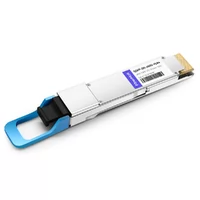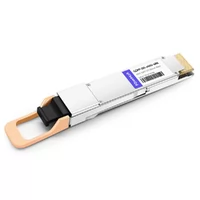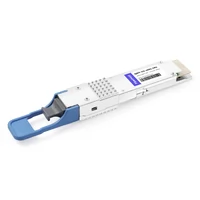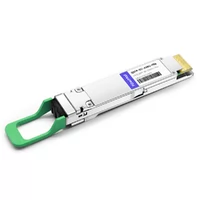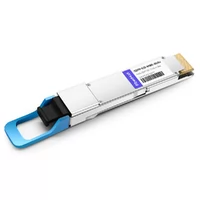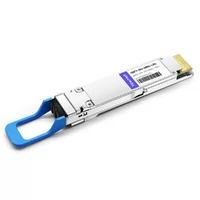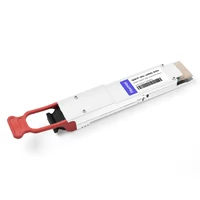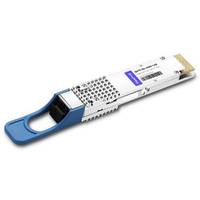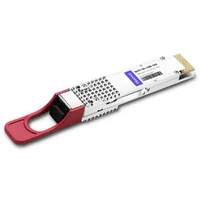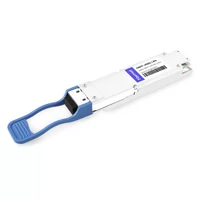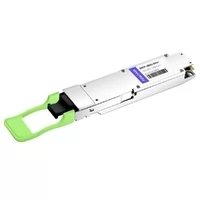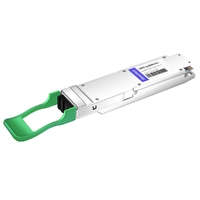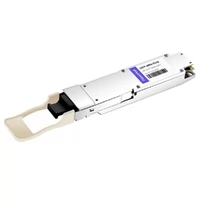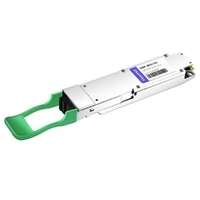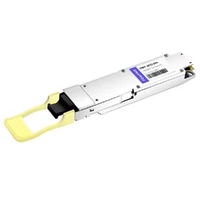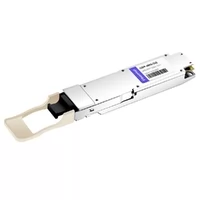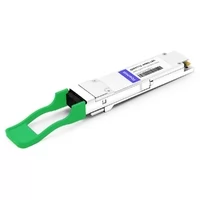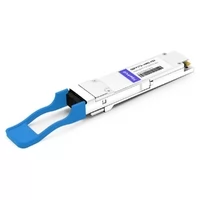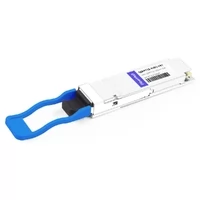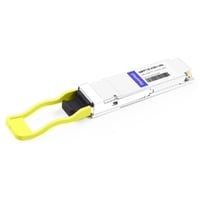400G optical transceiver is an optical module product with a transmission rate of 400Gbps, which is an advanced product in the field of high-speed transmission at present. The current mainstream package type is QSFP-DD (Quad Small Form-factor Pluggable Double Density), which is widely used in high-performance data centers, communication networks, large-scale computing, cloud computing, and other fields.
Table of Contents
ToggleWhy 400G is Gaining Mass Adoption
First and foremost is the rise in demand. Open innovation platforms, artificial intelligence (AI), machine learning, and cloud storage have combined to drive exponential growth in traffic. As large data centers transition to faster and more scalable infrastructures, high-capacity connectivity is essential to keep up with the growing number of users, devices, and applications. The 100G network has outgrown the demand for applications, and the 400G network has emerged.
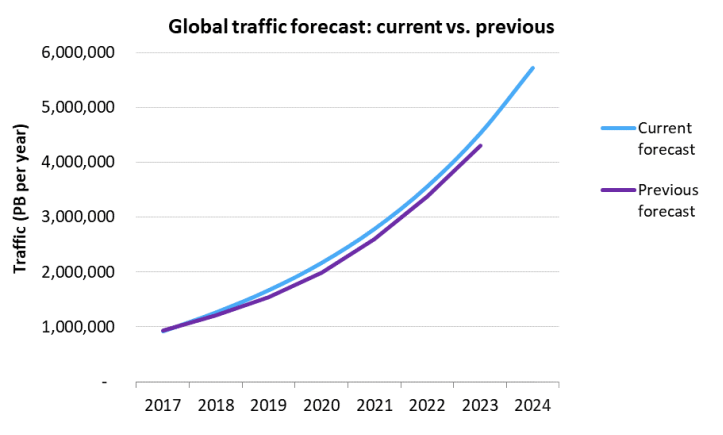
Network traffic growth
The second is cost reduction. Gordon Moore, the co-founder of Intel, came up with Moore’s Law, predicting that the number of transistors that can fit into an integrated circuit doubles every 18 months, underpinning the semiconductor industry’s success for more than half a century. “Moore’s Law in optics” also exists in the field of optoelectronics. Short-range optical modules evolve one generation every four years or so, halving the bit cost and power consumption. At present, the 400G technology has been very mature, which can greatly reduce customer procurement costs and operation and maintenance costs.
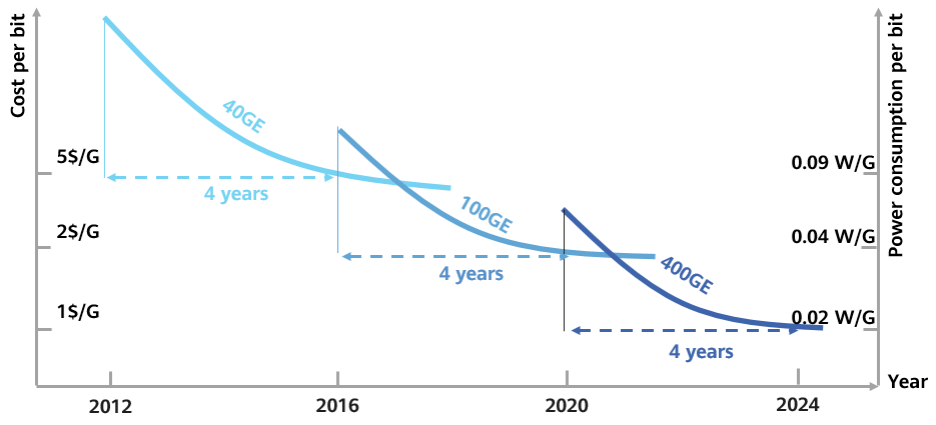
Moore’s Law in Optics
Why Choose QSFP-DD Package
In order to achieve higher rates, optical modules generally use three ways: increasing the optical device rate (higher baud rate), increasing the number of channels (multi-lane), and adopting higher-order modulation technology to reduce the transmission cost per bit. 400G modules have a relatively clear technical route: 8*50G PAM4 signals are used to complete 400G transmission, but a variety of options have emerged in the early stage of module packaging standards: CFP8, OSFP, and QSFP-DD: CFP8, OSFP, and QSFP-DD, among which QSFP-DD has occupied the 400G market with higher density, lower power consumption, and better ecology.
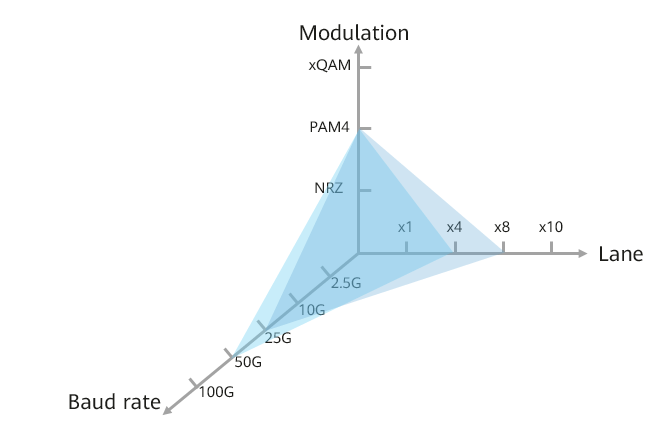
The technical path of optical modules to increase the rate
What are the Main Models of 400G Optical Transceivers
400G SR8 Transceiver
FiberMall’s 400G SR8 optical modules comply with the standard IEEE 802.3cm protocol and meet the requirements of 70m OM3 and 100m OM4/OM5 transmission links. The module uses a standard 16-core multi-mode MPO interface and consists of a transceiver optical component, VCSEL driver, trans-impedance amplifier (TIA), PAM4 service chip (oDSP), controller, and six other components. Each 8-channel optical and electrical component at the transceiver side is placed in a QSFP-DD package through a compact engineering design.
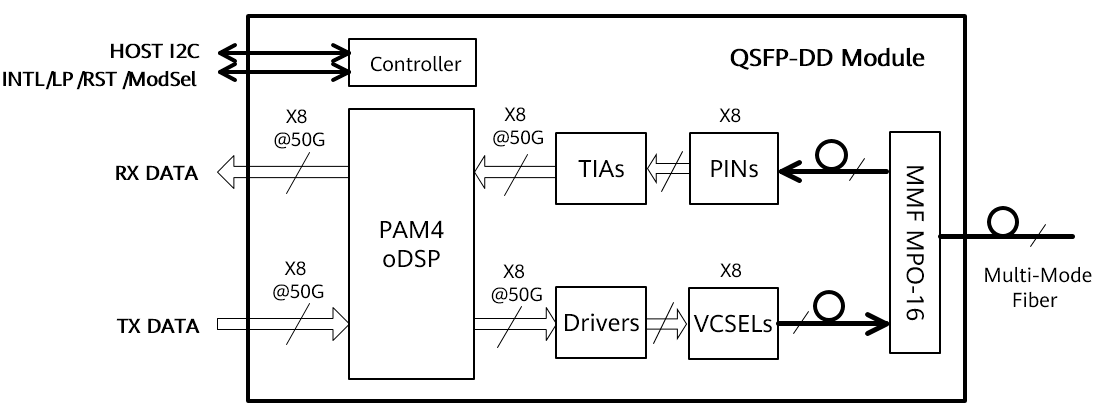
Block diagram of 400G SR8 optical module
The 400GE-SR8 optical module has 8 channels, each carrying 53.125Gbps signals with PAM4 high-order modulation, and the oDSP inside the module performs clock recovery and signal shaping and conditioning functions.
400G DR4, 400G DR4+ and 400G FR4 Optical Module
FiberMall’s 400GE-DR4, DR4+, and FR4 optical modules meet the standard IEEE 802.3bs & 802.3cu protocols with platform-based hardware design solutions to meet 500m and 2km transmission link requirements respectively. 400G DR4, DR4+, and 400G FR4 optical modules are shown in the block diagram below. The 400GE-DR4/DR4+ module uses a standard 12-core MPO connector, and the 400G FR4 module uses a standard dual LC connector. The module mainly consists of optical components for transceiver and transmitter, EML driver, trans-impedance amplifier (TIA), PAM4 service chip (oDSP), controller, and other six parts. The module design uses a full range of independently developed underlying components, covering an end-to-end vertically integrated solution from the optical chip (EML, PD) to the electrical chip (Driver, TIA, oDSP).
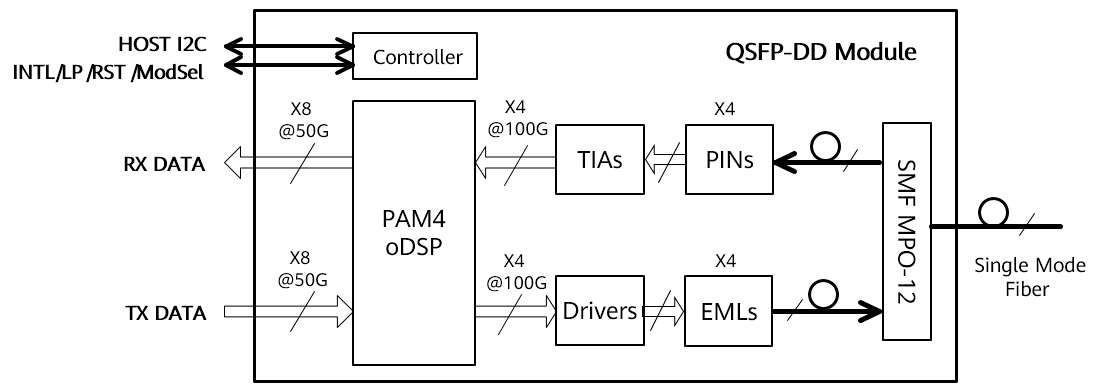
400G DR4 and 400G DR4+ Optical Module Block Diagram
The 400G DR4, DR4+, and 400G FR4 optical transceivers have a total of 4 channels of optical signals, each carrying 106.25Gbps signals. The electrical signal has 8 channels, each channel carries 53.125Gbps signal. The optical and electrical signals are both modulated by PAM4 high-order modulation, and the rate conversion is realized by the module’s internal oDSP, which simultaneously performs clock recovery and signal amplification and conditioning functions. In addition, the 400GE-DR4/DR4+ optical module is designed for parallel light output, and the 4-channel optical signal adopts the same wavelength design; the 400GE-FR4 optical module is designed for combined wavelength, and the 4-channel optical signal adopts different wavelengths and is output by the optical port after the optical wavelength division multiplexer synthesizes 1-channel optical signal. Compared with 100GE-CWDM4 and 100GE-PSM4, 400GE-DR4/DR4+ and FR4 can achieve higher system transmission rates by increasing the transmission rate of optical and electrical single-channel signals and the number of electrical channels at the same time.
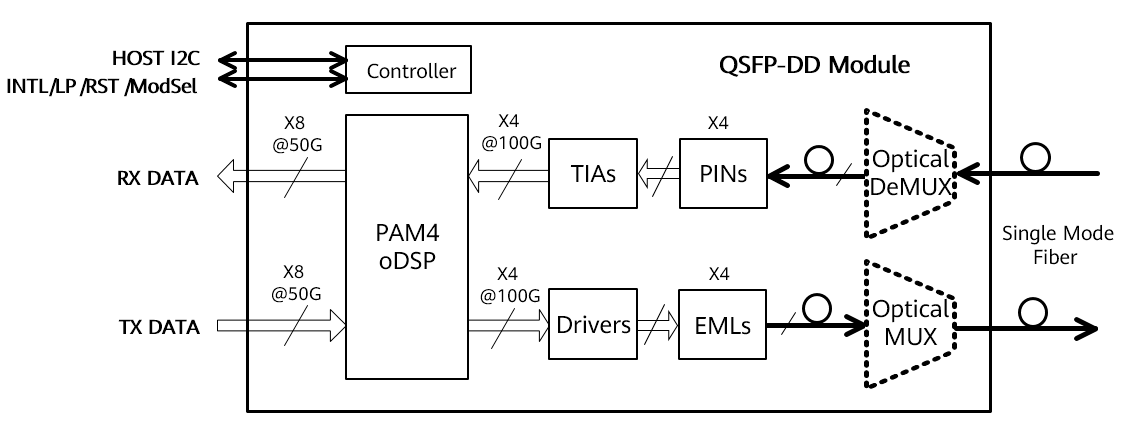
400G FR4 Optical Module Block Diagram
400G LR8 and 400G ER8 Optical Transceiver Modules
The 400G LR8/ER8/ER8 Lite module consists of TOSA, ROSA, EML Driver, PAM4 service chip (oDSP), and controller. The system block diagram is shown below. The module connector receives eight parallel 53.125Gbps PAM4 electrical signals from the board. After the adaptive processing of the digital signal processing chip (oDSP) in the optical module, the driver amplified the 8-channel semiconductor laser (TOSA), the 8-channel semiconductor laser output stable laser signals, and then through the MUX combined wave output, to achieve 8-channel electric-optical conversion.
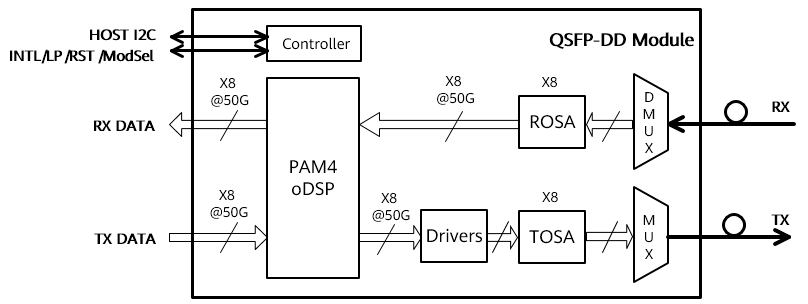
400G LR8 and 400G ER8 Optical Module Block Diagram
FiberMall 400G Optical Transceiver
FiberMall is a leading optical network solutions provider in China with industry-leading R&D, manufacturing, and technical service capabilities. Continue to provide users with innovative, efficient, and reliable optical network products, solutions, and services.
| Product Model | Description |
| QSFP-DD-400G-SR8 | 400GBASE-SR8 QSFP-DD Optical Transceiver Modules 400G 850nm 100m DOM MPO/MTP MMF |
| QSFP-DD-400G-FR4 | 400GBASE-FR4 QSFP-DD Optical Transceiver Modules 400G 1310nm 2km DOM LC SMF |
| QSFP-DD-400G-DR4 | 400GBASE-DR4 QSFP-DD Optical Transceiver Modules 400G 1310nm 500m DOM MTP/MPO SMF |
| QSFP-DD-400G-LR4 | 400GBASE-LR4 OSFP-DD Optical Transceiver Modules 400G 1310nm 10km DOM LC SMF |
| QSFP-DD-400G-ER4 | 400GBASE-ER4 QSFP-DD Optical Transceiver Modules LC Duplex SMF 1310nm 40km |
| QSFP-DD-400G-ER8 | 400GBASE-ER8 QSFP-DD Optical Transceiver Modules 400G 1310nm 40kmDOM LC SMF |
| QSFP-DD-400G-XDR4 | 400GBASE-XDR4 QSFP-DD Optical Transceiver Modules PAM4 1310nm 2km DOM MTP/MPO-12 SMF |
| QSFP-DD-400G-LR8 | 400GBASE-LR8 QSFP-DD Optical Transceiver Modules PAM4 1310nm 10km DOM Duplex LC SMF |
| QSFP-DD-400G-PLR4 | 4x100GBASE-LR OSFP-DD Optical Transceiver Modules 1310nm 10km DOM MTP/MPO-12 SMF |
In the era of high computing power, ultra-large data centers have increasing demands for bandwidth. 400G optical communication module has become the best choice to improve system performance and reduce bandwidth costs. FiberMall offers a full line of 400G optical module products ranging from 100m to 40km, providing a complete solution for data center 100G/400G networks and data center interconnections for use in a wide variety of networking scenarios, including data center networks, metropolitan integrated hosting networks, and high-capacity and long-distance transmission networks.
Related Products:
-
 QSFP-DD-400G-PLR4 400G QSFP-DD PLR4 PAM4 1310nm 10km MTP/MPO-12 SMF FEC Optical Transceiver Module
$1000.00
QSFP-DD-400G-PLR4 400G QSFP-DD PLR4 PAM4 1310nm 10km MTP/MPO-12 SMF FEC Optical Transceiver Module
$1000.00
-
 QSFP-DD-400G-SR8 400G QSFP-DD SR8 PAM4 850nm 100m MTP/MPO OM3 FEC Optical Transceiver Module
$149.00
QSFP-DD-400G-SR8 400G QSFP-DD SR8 PAM4 850nm 100m MTP/MPO OM3 FEC Optical Transceiver Module
$149.00
-
 QSFP-DD-400G-DR4 400G QSFP-DD DR4 PAM4 1310nm 500m MTP/MPO SMF FEC Optical Transceiver Module
$400.00
QSFP-DD-400G-DR4 400G QSFP-DD DR4 PAM4 1310nm 500m MTP/MPO SMF FEC Optical Transceiver Module
$400.00
-
 QSFP-DD-400G-FR4 400G QSFP-DD FR4 PAM4 CWDM4 2km LC SMF FEC Optical Transceiver Module
$500.00
QSFP-DD-400G-FR4 400G QSFP-DD FR4 PAM4 CWDM4 2km LC SMF FEC Optical Transceiver Module
$500.00
-
 QSFP-DD-400G-XDR4 400G QSFP-DD XDR4 PAM4 1310nm 2km MTP/MPO-12 SMF FEC Optical Transceiver Module
$580.00
QSFP-DD-400G-XDR4 400G QSFP-DD XDR4 PAM4 1310nm 2km MTP/MPO-12 SMF FEC Optical Transceiver Module
$580.00
-
 QSFP-DD-400G-LR4 400G QSFP-DD LR4 PAM4 CWDM4 10km LC SMF FEC Optical Transceiver Module
$600.00
QSFP-DD-400G-LR4 400G QSFP-DD LR4 PAM4 CWDM4 10km LC SMF FEC Optical Transceiver Module
$600.00
-
 QSFP-DD-400G-ER4 400G QSFP-DD ER4 PAM4 LWDM4 40km LC SMF without FEC Optical Transceiver Module
$3500.00
QSFP-DD-400G-ER4 400G QSFP-DD ER4 PAM4 LWDM4 40km LC SMF without FEC Optical Transceiver Module
$3500.00
-
 QSFP-DD-400G-LR8 400G QSFP-DD LR8 PAM4 LWDM8 10km LC SMF FEC Optical Transceiver Module
$2500.00
QSFP-DD-400G-LR8 400G QSFP-DD LR8 PAM4 LWDM8 10km LC SMF FEC Optical Transceiver Module
$2500.00
-
 QSFP-DD-400G-ER8 400G QSFP-DD ER8 PAM4 LWDM8 40km LC SMF FEC Optical Transceiver Module
$3800.00
QSFP-DD-400G-ER8 400G QSFP-DD ER8 PAM4 LWDM8 40km LC SMF FEC Optical Transceiver Module
$3800.00
-
 OSFP-400G-LR4 400G LR4 OSFP PAM4 CWDM4 LC 10km SMF Optical Transceiver Module
$1199.00
OSFP-400G-LR4 400G LR4 OSFP PAM4 CWDM4 LC 10km SMF Optical Transceiver Module
$1199.00
-
 OSFP-400G-DR4+ 400G OSFP DR4+ 1310nm MPO-12 2km SMF Optical Transceiver Module
$850.00
OSFP-400G-DR4+ 400G OSFP DR4+ 1310nm MPO-12 2km SMF Optical Transceiver Module
$850.00
-
 OSFP-2x200G-FR4 2x 200G OSFP FR4 PAM4 2x CWDM4 CS 2km SMF FEC Optical Transceiver Module
$1500.00
OSFP-2x200G-FR4 2x 200G OSFP FR4 PAM4 2x CWDM4 CS 2km SMF FEC Optical Transceiver Module
$1500.00
-
 OSFP-400G-PSM8 400G PSM8 OSFP PAM4 1550nm MTP/MPO-16 300m SMF FEC Optical Transceiver Module
$1000.00
OSFP-400G-PSM8 400G PSM8 OSFP PAM4 1550nm MTP/MPO-16 300m SMF FEC Optical Transceiver Module
$1000.00
-
 OSFP-400G-FR4 400G FR4 OSFP PAM4 CWDM4 2km LC SMF FEC Optical Transceiver Module
$900.00
OSFP-400G-FR4 400G FR4 OSFP PAM4 CWDM4 2km LC SMF FEC Optical Transceiver Module
$900.00
-
 OSFP-400G-DR4 400G OSFP DR4 PAM4 1310nm MTP/MPO-12 500m SMF FEC Optical Transceiver Module
$800.00
OSFP-400G-DR4 400G OSFP DR4 PAM4 1310nm MTP/MPO-12 500m SMF FEC Optical Transceiver Module
$800.00
-
 OSFP-400G-SR8 400G SR8 OSFP PAM4 850nm MTP/MPO-16 100m OM3 MMF FEC Optical Transceiver Module
$225.00
OSFP-400G-SR8 400G SR8 OSFP PAM4 850nm MTP/MPO-16 100m OM3 MMF FEC Optical Transceiver Module
$225.00
-
 QSFP112-400G-LR4 400G QSFP112 LR4 PAM4 CWDM 10km Duplex LC SMF FEC Optical Transceiver Module
$1500.00
QSFP112-400G-LR4 400G QSFP112 LR4 PAM4 CWDM 10km Duplex LC SMF FEC Optical Transceiver Module
$1500.00
-
 QSFP112-400G-FR4 400G QSFP112 FR4 PAM4 CWDM 2km Duplex LC SMF FEC Optical Transceiver Module
$750.00
QSFP112-400G-FR4 400G QSFP112 FR4 PAM4 CWDM 2km Duplex LC SMF FEC Optical Transceiver Module
$750.00
-
 QSFP112-400G-FR1 4x100G QSFP112 FR1 PAM4 1310nm 2km MTP/MPO-12 SMF FEC Optical Transceiver Module
$1200.00
QSFP112-400G-FR1 4x100G QSFP112 FR1 PAM4 1310nm 2km MTP/MPO-12 SMF FEC Optical Transceiver Module
$1200.00
-
 QSFP112-400G-DR4 400G QSFP112 DR4 PAM4 1310nm 500m MTP/MPO-12 with KP4 FEC Optical Transceiver Module
$650.00
QSFP112-400G-DR4 400G QSFP112 DR4 PAM4 1310nm 500m MTP/MPO-12 with KP4 FEC Optical Transceiver Module
$650.00

